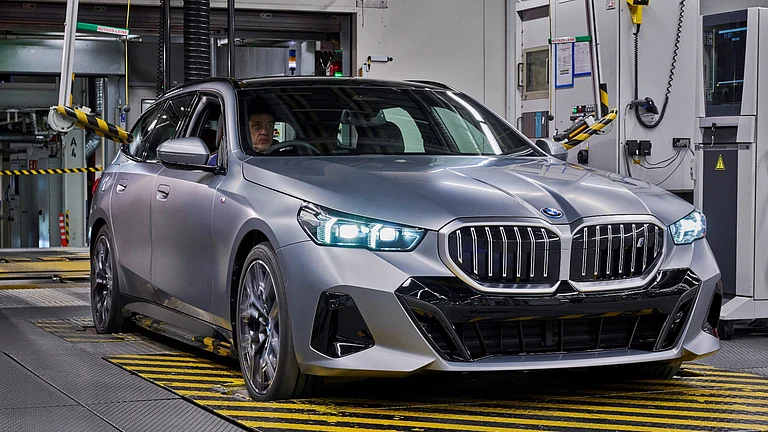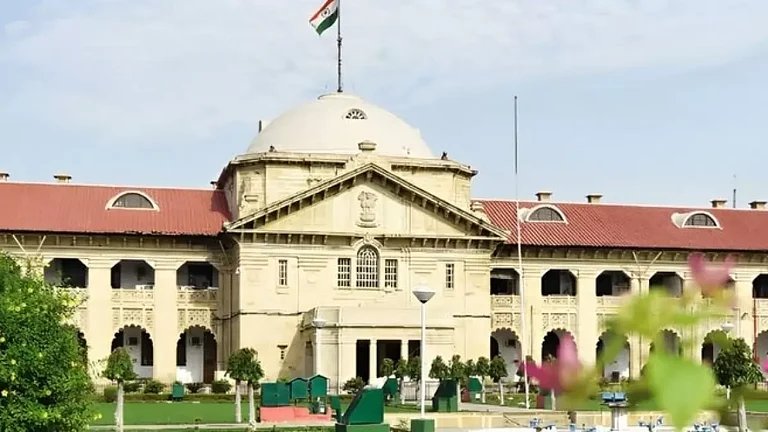In a significant ruling benefiting commercial drivers, the Supreme Court on Wednesday held that individuals holding a Light Motor Vehicle (LMV) driving licence are eligible to drive transport vehicles with a weight not exceeding 7,500 kg.
The judgement from a five-judge Constitution bench, led by Chief Justice D Y Chandrachud, offers clarity on licensing regulations and is expected to prevent insurance companies from rejecting claims based on the licence type of drivers involved in accidents.
“A driver holding a licence for light motor vehicle… for vehicles with gross vehicle weight under 7,500 kg is permitted to operate a transport vehicle without needing additional authorisation… of the Motor Vehicle Act.
"LMVs and the transport vehicles are not entirely separate classes, and overlap exists between the two,” the bench held, adding the statute should remains practical and workable.
Pronouncing the unanimous verdict for the bench, Justice Hrishikesh Roy, however, said the special eligibility requirement will continue to apply to vehicles carrying hazardous goods.
Besides the CJI and Justice Roy, the bench also comprised Justices P S Narasimha, Pankaj Mithal and Manoj Misra.
“Road safety is a serious public issue globally. It is crucial to mention that in India, over 1.7 lakh persons were killed in road accidents… and the assumption that they stem from drivers operating light transport vehicles driven by LMV licence holders are unsubstantiated,” the bench said.
The bench said factors contributing to road accidents include rash driving, speeding, road design and the failure to adhere to traffic laws. Other significant contributors are the use of mobile phones while driving and non-compliance with regulations like seat belts and wearing helmets, it added.
“We are able to reach such a conclusion as none of the parties in this case has produced any empirical data to demonstrate that LMV driving licence holders driving a transport vehicle is a significant cause for road accidents in India,” it said.
“An authoritative pronouncement by this court would prevent insurance company from taking a technical plea to defeat a legitimate claim for compensation involving an insured vehicle going below 7,500 kg, driven by a person holding a driving licence for LMVs in an era where autonomous or driverless vehicles are no longer tales of science fiction and app-based passenger platforms are a modern reality, the licensing regime cannot remain static,” it said.
The amendments that have been carried out by the Indian legislature may not have dealt with all the possible concerns, it said.
“As we are informed by the attorney general that the legislative exercise is underway, we hope that a comprehensive amendment to address the statutory lacunas will be made with necessary corrective measures,” it said.
"Our present interpretation on how the licensing regime is to operate for drivers under the statutory scheme is unlikely to compromise the road safety concerns," the court said.
The bench said this will also effectively address the livelihood issues for drivers operating transport vehicles who clock maximum hours behind the wheels in legally operating transport vehicles below 7,500 kg with their LMV driving licence.
The bench upheld the 2017 judgement of the apex court in the Mukund Dewangan case which had held that the LMV license holders can drive transport vehicles weighing upto 7,500 kg.
The bench had reserved its verdict on August 21 on the vexatious legal issue after Attorney General R Venkataramani, appearing for the Centre, had submitted that the consultations to amend the Motor Vehicles (MV) Act, 1988 are "almost complete".
The legal question, which was answered by the bench, was whether a person holding a driving licence for a light motor vehicle (LMV) is also entitled to drive a transport vehicle with an unladen weight not exceeding 7,500 kg.
The issue has given rise to various disputes over payment of claims by insurance companies in accident cases involving transport vehicles being driven by those possessing licences to drive LMVs.
The insurance firms had been alleging that the motor accident claim tribunals (MACTs) and the courts have been passing orders asking them to pay insurance claims, disregarding their objections with regard to the LMV driving licence.
The courts have been adopting a pro-insured approach while deciding insurance claim disputes, the insurance firms had said.
The question was referred to the larger bench on March 8, 2022, by a three-judge bench headed by Justice U U Lalit (since retired).
The question arose from the apex court's 2017 verdict in the case of Mukund Dewangan versus Oriental Insurance Company Limited.
In the Mukund Dewangan case, a three-judge bench of the court had held that transport vehicles, the gross weight of which does not exceed 7,500 kg, are not excluded from the definition of an LMV.
The judgement was accepted by the Centre and the rules were amended to align those with the verdict.
On July 18 last year, the Constitution bench commenced a hearing on 76 petitions to deal with the legal question. The lead petition was filed by M/s Bajaj Allianz General Insurance Company Limited.
While referring the matter to the larger bench, it was said that certain provisions of the law were not noticed by the apex court in the Mukund Dewangan judgement and "the controversy in question needs to be revisited".
The MV Act provides for different regimes for the granting of driving licences for different categories of vehicles.






.jpg?w=801&auto=format%2Ccompress&fit=max&format=webp&dpr=1.0)



_570_850.jpg?auto=format%2Ccompress&fit=max&format=webp&w=768&dpr=1.0)
















